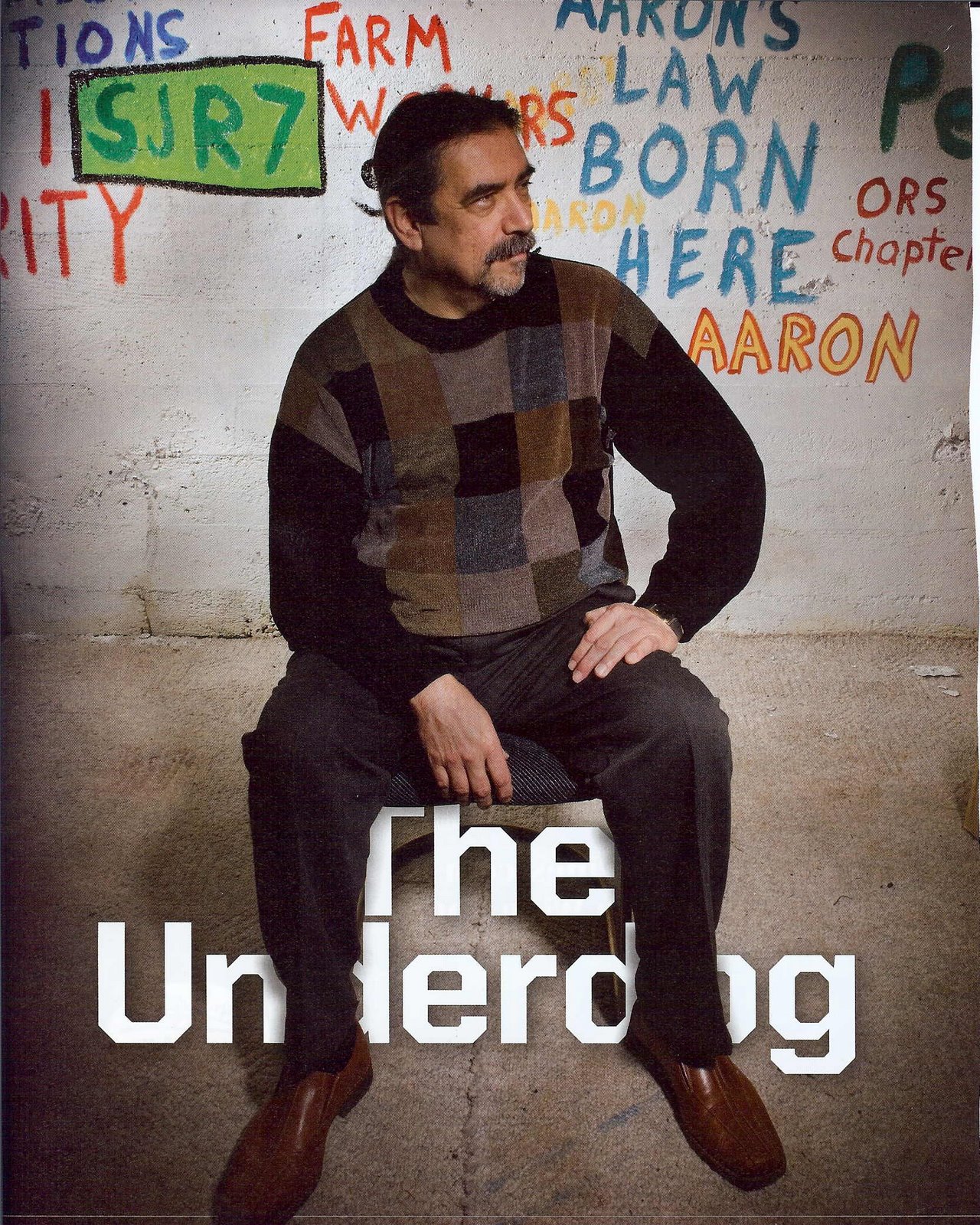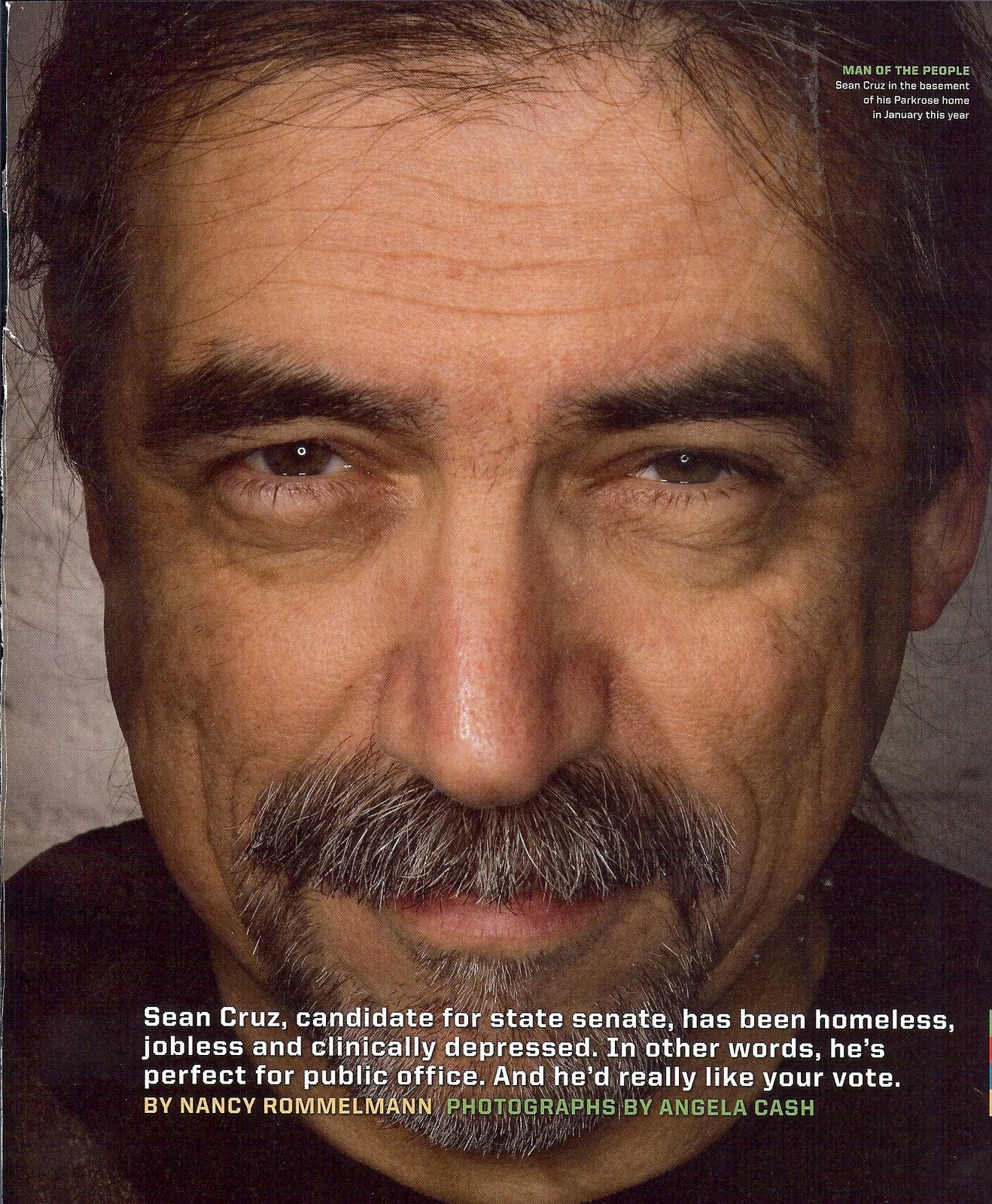The new Oregon patrol towing laws embodied in Senate Bill 116 and Senate Bill 431 go into effect January 1, 2008, providing long-overdue protection from theft-by-tow-truck and other towing-related abuses.
The fact that recently I’m seeing patrol tow trucks sneaking into the small parking lot behind my house in the early hours of the morning more frequently, stalking the low-income neighbors housed in one of Hacienda CDC’s “affordable” housing projects, also has me looking out my window first thing every morning to see if my car is still in my own driveway.
Until the new laws go into effect, my neighbors and those like them, who live in apartments with small parking lots having spaces for under ten vehicles, have no protection due to a loophole in state law.
SB 116 and SB 431 fix that problem, removing the exception from the law.
The stepped-up patrols may signal an effort on the part of the patrollers to get the money while they can.
I take the position that whatever happens to my neighbors, who inhabit two triplexes immediately behind my home, is also happening to tenants in similar properties elsewhere.
The canary in this coal mine is a small parking lot with designated spaces for seven tenant vehicles and no nearby onstreet parking permitted. I have seen two tow trucks in that lot at the same time.
In fact, Hacienda’s current towing contractor has once again stepped up the patrolling without notifying neighboring property owners of the increased risk, even after Hacienda has promised in writing (one more among a long list of unkept commitments) not to patrol the lot.
My daily routine has become: (1) wake up; (2) look out window, verify my vehicle is still in my driveway; (3) make coffee, read the paper.
The fact is, if you are starting your day without your vehicle, you need to know that as soon as possible, and experience informs me that even under the best of circumstances, it will take most of the day to get your vehicle back.
The patrol towers think they are doing you a big favor if they give you your own vehicle back, even if it has clearly been wrongfully towed, the mistake is entirely theirs, somewhere in their food chain, and they have cost you time and peace of mind, if not actual property damage.
I can’t tell you how many times I’ve heard them protest that they gave me my vehicle back free of charge (although with a broken transmission), so what’s the problem?
And Hacienda remains adamant to this day in refusing to apologize for the depredations of its towing contractors and the laxity and negligence of its property managers, even after they have trespassed on my property and stolen my vehicle FOUR TIMES since they began patrolling my neighbors’ parking in 2005.
In fact, they recently hired a big-time Schwabe Williamson corporate lawyer to speak for them on the towing issues. More on this later.
In fact, MUCH more on this later.
I intend to tell the full Horror Story, and thanks to scanning technology, with real documents to illustrate key points. Portland’s #1 Patrol Towing Horror Story, being an ongoing Horror Story, will therefore be told in several parts.
Some essential facts and themes that will be more fully developed as the Horror Story unfolds:
Key fact: I’ve lived in my home here for about five years, watched the two triplexes get built and have an easement to drive through Hacienda’s small parking lot to get to the rear of my house, where I park on my own property.
Not once, during the years that there have been tenants living back there, have I had occasion to complain about a tenant or a tenant’s vehicle occupying my space, or needed a tow truck to haul someone’s car away. Not once. The tenants have all been fine with me.
Embedded in the arrangement between Hacienda and its various property management and towing contractors, whether or not it is expressly in writing, are the understandings that:
(1) Hacienda pays nothing for the “service;”
(2) The tow drivers are paid on a commission/bonus basis, and may or may not have health insurance and other benefits, so the drivers are under a great deal of pressure when they slide into the parking lot in the dawn hours. If they drive out of there without a vehicle, the drivers are working for free.
(3) This is an essential feature of the patrol towing business model, unique to Oregon: property owners and managers pay nothing on the one end, the drivers face the dual threat of working a hazardous, stressful job and coming home at the end of a patrol with empty pockets.
(4) Hacienda’s tenants are subject to differing towing rates, depending on the size of the parking lot that serves (!) that particular property, according to however the towing contractor wants to handle it.
(5) If the towing contractors are going to make a profit from burning fuel 24 hours a day, they are going to have to shake the cash out of Hacienda’s low-income tenants directly or through the sale of their confiscated vehicles;
(6) Hacienda (the absentee landlord) defers the towing decisions to its property management company (the offpremises manager), which defers the decision making to the towing company, which in turn sends drivers out at early dark 30 to earn a commission taking vehicles before their owners wake up.
(7) It is common knowledge that the fees patrol towers charge are beyond deterrence, beyond punitive, and are often actually confiscatory.
(8) During the 2007 hearings on SB 116 and SB 431, the patrol towers testified that there are three basic patrol rate scales: (a) the fleet, business or government rates; (b) the rates negotiated between private parties; and, (c) the rates that towers arbitrarily impose on the public through patrol towing, or Private Property Impound (PPI) operations. The PPI rates are by far the highest.
(9) A subtext to this is the fact, once the patrol towers have hooked a vehicle, they control all the financial matters from then on, including the “anger” or “attitude” fees they demand from the public as a predicate to releasing the vehicle, to the valuation of the vehicle itself.
(10) The valuation of the vehicle is the critical piece of information that determines how quickly the tow company can auction it off. The lower the value the tower assigns to the vehicle, the quicker it can be liquidated. And, of course, if it sells for less than they say you owe them, you still owe them.
Meanwhile, they pile on the storage and whatever charges, but you already knew that…are you starting to feel like you’re in the wrong business? Who else in business assumes these powers?
(11) Regardless of whether a person has purposefully or negligently or mistakenly parked in the wrong place, the end result can be actual loss of the vehicle. That penalty is completely out of scale in relation to the offensive parking.
(12) The morning that Portland’s #1 Patrol Towing Horror Story began, Hacienda’s towing contractor stole two vehicles from my home.
In retrospect, it was a godsend, because if I hadn’t had the opportunity to compare two invoices of cars parked side by side and towed under exactly identical circumstances, we may still not know about the dual patrol towing invoicing systems.
Same company, same morning, same absurd justification for trespass and theft, two different drivers, two completely different rate schedules, two different printed invoices. More on this later, but for now, consider this:
Driver #1 invoiced me $ 10 a day for storage, and driver #2 $ 20 a day. Hello?
The drivers took the vehicles to different storage lots, one nearby, the other clear across town, invoicing me for mileage and the fuel he claimed he burned in the process of stealing my van and dragging it to NW 15th and Quimby.
One driver invoiced me for $ 10 for taking a picture of my vehicle, which in this case showed it being stolen by the picture-taker. The other missed the opportunity, apparently.
None of the other charges imposed by the drivers matched one another, either.
There are multiple reasons for that, and we’ll get into that in future installments.
Coming soon to a blog near you: Portland’s #1 Patrol Towing Horror Story, Part 2
Subscribe to:
Post Comments (Atom)






3 comments:
Sean, I was recently towed at my apartment and am trying to understand this new legislature that recently passed (the dmv was no help nor police department) I received a 300$ bill for them holding my car a total of 20 minutes!
No MANAGER at my building called them, nor do we have stickers, nor has my apartment ever provided me with documentation showing who would tow us and the costs. There are posted signs but that is it!
The tow truck company patrolled the area and towed my car while I was in my apartment packing to leave early in the morning.
Was this legal? I see new legislature was passed. I cannot afford such an outrageous charge. It sickens me to think something like this could be legal, and every night that company is scouring the surrounding apartments to profit from us, via RIDICULOUS fees!
John: If your car was towed in Portland, then call the Towing Coordinator. Also contact the Attorney General's office. If your car was towed outside of Portland, then the Attorney General may be your only recourse. The new laws authorize the AG to take complaints and enforce the law. The new law requires the landlord to provide you with information including the actual costs of towing. Let me know what response you get. Sean
Thank you for the help. I've read parts of your blog, America and Oregon needs more politicians like you.
Post a Comment